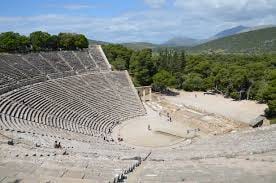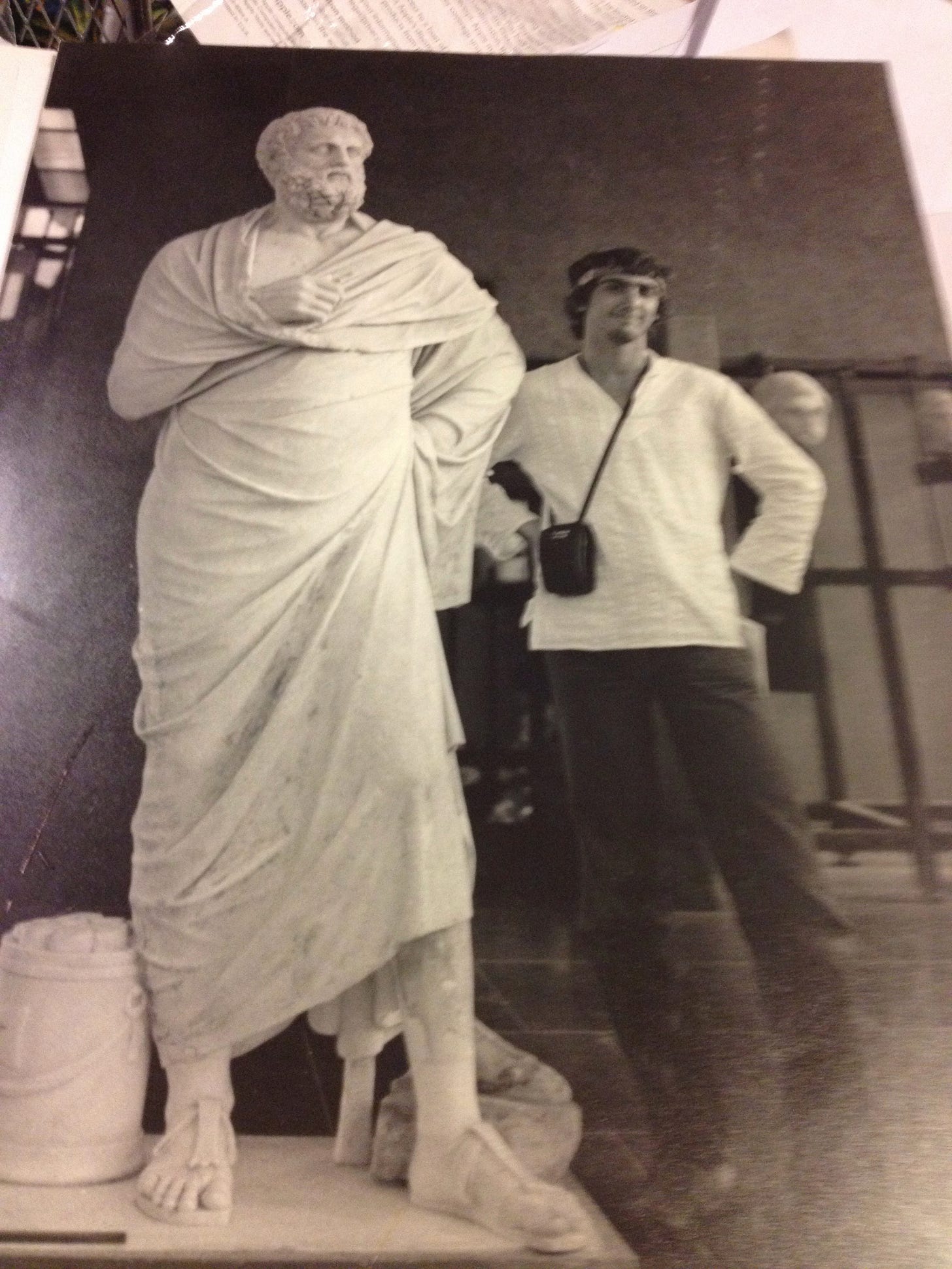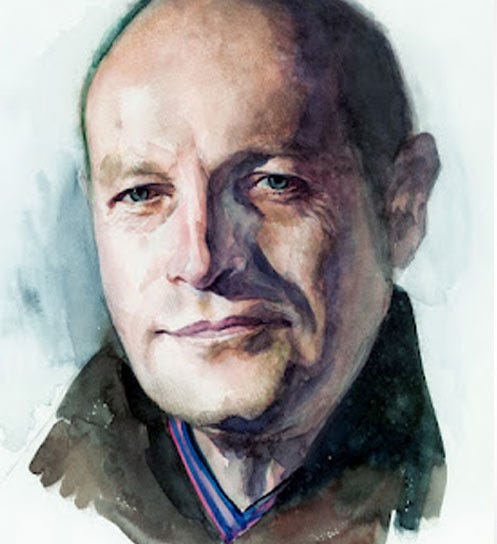An epic visit to the theatre at Epidauros
Remembering the magic of a legendary production for World Theatre Day
I was looking for a story to share for World Theatre Day - March 27th - and tried to think of my most magical theatre memory. I’m lucky enough to have a lot of magical theatre memories - including some recent ones courtesy of Martin Kinch and Saul Rubinek. But this… Takes us to where western theatre started… ancient Greece.
I originally wrote this story for Theatrum - Canada’s long-defunct national theatre magazine - a lifetime or so ago. I’ve revised it a bit - mostly to acknowledge the late Dr. Peter Loeffleur - who inspired so many students at the University of British Columbia to fall in love with theatre that he seems like the perfect person to honour on world theatre day. I teach a class at UVic that’s an intro to Fine Arts and it’s very much in the spirit of how Peter taught theatre history.
Also, I now know more details about this - including the date of the event - June, 18, 1982 - because this production is part of world theatre history.
Me in Europe, hanging with a statue of Sophocles in 1982… Photo: Bob Hogg
At the end of his first-year-theatre history class at UBC Dr. Peter Loeffler shared a list of the most wonderful theatres in the world. The top of that list… A marvel. Almost 14,000 seats, acoustically perfect and over 2,000 years old. He told our class that someone could strike a match centre stage and someone sitting in the 55th row of the arena could hear the sizzle when the flame sparked. It was the Theatre of Epidaurus and it was carved into a mountainside near the tiny Greek community of Nafplion.
When my friend, Bob, and I went to Europe for the summer of 1982 there were only a few landmarks I had to see, and one of them was this ancient Greek theatre. We arrived in Athens in June. I remembered Peter telling us that each summer the theatre presented classical Greek tragedies -- in the original Greek.
At a gift shop in the Athenian marketplace -- the plaka -- a shopkeeper told us about his visit to Epidaurus. A 32-year-old Athenian, he explained that he hadn't understood a word of the play because it was performed in ancient Greek. He'd had the plot explained to him by a British professor who taught ancient languages. But while the words meant nothing to him, the show itself was such a spectacle that he agreed it was not to be missed and pointed us in the direction of a ticket agency.
The woman in the ticket booth spoke no English and we spoke no Greek, but we eventually made it clear that we wanted tickets to that weekend's show at Epidaurus. We decided to buy the cheapest seats since we weren't travelling with much money and knew we weren't going to understand the words anyway.
That Friday afternoon we hopped a train to Argos, then took a taxi to Nafplion. We unloaded our packs at an inexpensive hotel and caught a tour bus to the theatre. Bob found a seat at the back of the bus and I found myself resting on the floor up front.
In the seat beside me a man was reading a paperback potboiler -- the kind of book with a swastika and a silhouette of a nude woman on the cover. Eventually he finished his chapter, looked up and we fell into a conversation.
I asked what he was up to and he responded in an impeccably posh British accent that he was off to “the theatre.” I told him that I was too and asked if he was excited about seeing the show. "I'm not seeing the show," he replied softly, "I'm in it."
I said something stupid like, "you don't sound Greek."
"I'm with the National Theatre of Great Britain," he explained. Then, obviously excited, he told me his story. The National Theatre had produced a highly acclaimed version of Aeschylus' Oresteia trilogy. Directed by Peter Hall.
An official with the Greek government was suitably impressed and through diplomatic channels the British government and the Greek government had reached a special agreement.
The National Theatre would be allowed to take their production to Epidaurus for two nights and two nights only. It was the first time a foreign company had ever been permitted to perform in this Greek national treasure, said the actor brightly, unable to control his enthusiasm. It was the first time anything had ever been performed there in English. And this was opening night. The BBC would be there to film the event. "It's history," he said proudly.
When we arrived at the mammoth theatre I seriously regretted having purchased the cheap seats. An officious twenty-something woman in quasi-military uniform was directing everyone to their seats. People would approach her, display their tickets and she would point upwards to the heavens.
Bob and I reached her. I smiled nervously as we showed her our tickets. She smiled back, said something in Greek and instead of raising her arm to the stars pointed straight ahead to the seventh row near the centre of the theatre.
I looked at her, puzzled, but she just smiled at us, nodded happily and pointed again to the seventh row.
A well-dressed middle-aged couple behind us approached her with the top-priced tickets in hand. "Where are we?" the man demanded loudly. She pointed skyward. "But what about them," he said pointing at us, "they've got the cheapest --"
But the usher was adamant and, after the challenge, pointed her finger even higher and smiled at us again.
The show itself was amazing. The whole trilogy was performed entirely in mask in the outdoor theatre by a cast that was even more excited to be there than the audience.
Television cameras filmed the entire event as daylight faded to dusk and eventually darkness, with the actors completing the show by starlight. It was magical.
A few weeks later Bob and I visited London and joined a tour of the National Theatre. At the end of the guide's talk, he mentioned that the company had just completed one of the most exciting events in its history.
"We performed our adaptation of the Oresteia at the ancient Greek theatre of Epidauros." Bob and I just smiled.







